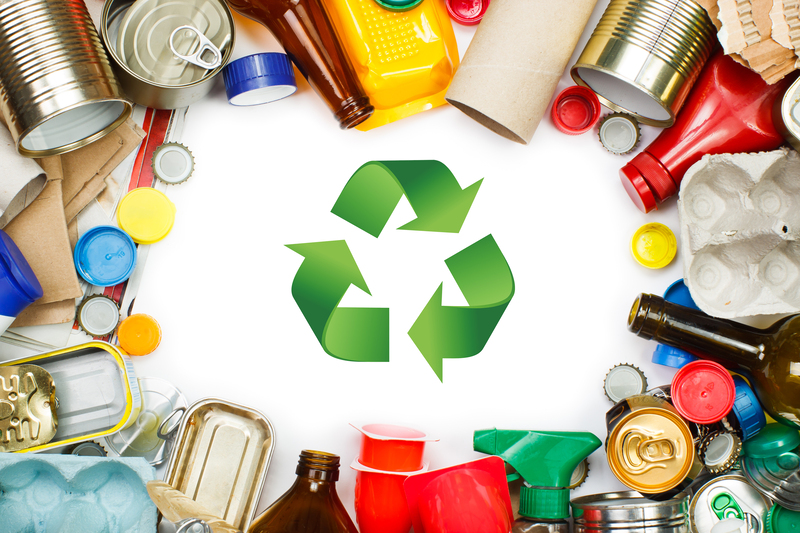Green Disposal Options for Used Pots and Pans
Do you have old, worn-out, or unwanted pots and pans taking up space in your kitchen? Choosing the right way to dispose of used cookware is vital for sustainability and environmental health. Every year, countless pieces of cookware end up in landfills, contributing to pollution and wasted resources.
Instead of tossing your old cookware into the trash, consider exploring green disposal options for used pots and pans. This comprehensive guide will walk you through practical, planet-friendly ways to recycle, donate, upcycle, and safely get rid of your old pots and pans. By the end, you'll know how to clear out your cabinets with a clear conscience!
Why Properly Disposing of Used Pots and Pans Matters
The cookware you no longer want may seem insignificant, but pots and pans are made from valuable resources such as metals, non-stick coatings, plastics, and composite materials. If improperly disposed of, they can cause environmental harm and waste resources. Here's why it's important to seek out eco-friendly cookware disposal solutions:
- Reduces landfill waste: Landfills are overflowing with items that could be reused or recycled.
- Conserves natural resources: Recycling metals reduces the need for raw material extraction.
- Prevents harmful chemical leaching: Non-stick coatings and some metals can pollute soil and water if not disposed responsibly.
- Supports community needs: Donating usable items helps others and prolongs their life cycle.
Understanding the Material in Your Cookware
Before you proceed to recycle, donate, or upcycle your cookware, it's vital to identify what material your pots and pans are made of:
- Stainless Steel: Durable and 100% recyclable.
- Aluminum: Lightweight, rust-resistant, and highly sought by recyclers.
- Cast Iron: Heavy, virtually indestructible, and fully recyclable.
- Copper: Valuable and recyclable, often found in premium cookware.
- Non-Stick or Ceramic-Coated: Can be trickier to recycle, but not impossible.
- Mixed Materials or Enamel: May require special handling.
Knowing your cookware's composition will determine the best green disposal method.

Best Green Disposal Options for Used Pots and Pans
1. Recycling Old Pots and Pans
Recycling is one of the most environmentally responsible ways to dispose of used pots and pans. Most cookware is made from metals such as aluminum or stainless steel--both highly recyclable. Here's how you can do it:
- Check Your Local Recycling Program: Some curbside programs accept cookware, while others do not. Visit your municipal website or call for guidelines.
- Visit a Scrap Metal Recycler: These facilities accept a broader range of metal goods, even if they're rusty or broken.
- Remove Non-Metal Components: Take off handles, plastic bits, or non-metal parts before recycling. Mixed materials may reduce recycling value.
- Separate Non-Stick and Coated Items: If your pan has a non-stick coating, ask the recycler if they'll take it--some don't accept Teflon-coated cookware due to toxicity concerns.
Always ensure pans are clean and free from food residue before recycling. If you're unsure, search online for "metal recycling near me" or call ahead for facility-specific advice.
2. Donating Usable Cookware
If your pots and pans are still functional, consider donating them to someone in need. Donating gently used cookware extends its use and eases the burden on the environment. Here's where you can donate:
- Charity Thrift Stores: Goodwill, Salvation Army, and local charity shops often accept kitchenware.
- Shelters and Food Banks: Many shelters provide meals or help families get back on their feet--usable pots and pans are often in high demand.
- Community Centers: Places that host cooking classes or community meals may appreciate extra cookware.
- Online Groups: Apps like Freecycle, Craigslist, Nextdoor, and Facebook Marketplace allow you to post items for free within your local community.
*Tip: Always check for donation guidelines and ensure your items are clean and safe to use.*
3. Upcycling and Repurposing Old Cookware
Not all green disposal methods involve giving away or recycling. Unleash your creativity by upcycling old pots and pans! Repurposing cookware is an excellent way to reduce waste, save money, and add personality to your home or garden. Here are some inventive ideas:
- Planters for Gardens or Patios: Drill drainage holes and fill with soil for quirky, rustic planters.
- Craft Projects: Use enamel pots as storage bins, utensil holders, or colorful wall art.
- Bird Baths or Feeders: Cast iron or heavy stainless pans make sturdy bird baths or feeders with a simple modification.
- Pet Food Dishes: Cleaned and sanitized, small pans can serve as feeding bowls for pets.
- Outdoor Lighting: Turn colanders or metal pans into funky lanterns or lamp shades.
Repurposing is not only a sustainable cookware disposal option, but also a rewarding hobby!
4. Scrap Metal Yards: An Eco-Friendly Solution
When recycling centers or curbside pickup don't accept your specific cookware, scrap metal yards are often the best alternative. These facilities purchase, process, and recycle a wide range of household metals, including used pots and pans--and sometimes, even those with non-removable handles or damage.
- Sort Your Metals: Group together pans by type for easier drop-off and potentially higher payouts.
- Bring Identification: Many scrap yards require ID for transactions (for anti-theft policies).
- Ask About Composite Cookware: Some yards accept coated or mixed-material cookware; others do not. Always confirm in advance.
- Get Creative: Turn in broken, rusted, or unneeded pans along with other scrap metal from your garage or home cleanout.
Special Considerations for Non-Stick, Teflon, and Ceramic-Coated Pans
While recycling is a great solution for metal cookware, non-stick and ceramic-coated cookware pose unique challenges. Traditional curbside programs often will not accept these pans because the coatings can be difficult or expensive to process.
- Check Manufacturer Take-Back Programs: Some brands offer mail-back or recycling programs for their cookware (check brands like Calphalon, GreenPan, and T-fal).
- Contact the Recycling Center: Ask if they accept non-stick cookware and what preparation steps you should follow.
- Upcycle Whenever Possible: Older non-stick pans, lined or cracked, generally aren't safe for cooking but make excellent planters or craft bases.
Never burn or intentionally destroy non-stick pans to remove coatings--this can release harmful fumes.
Frequently Asked Questions about Green Disposal for Cookware
Can I Put Old Pots and Pans in Curbside Recycling?
In most areas, curbside recycling does NOT accept cookware unless specifically stated--because cookware isn't made from the same grade of metal as soda cans or food tins. Consult your local recycling program for details or use a scrap metal facility for metal pots and pans.
Is It Okay to Donate Pots and Pans with Some Wear?
Many thrift shops, shelters, and other donation centers will accept cookware with light wear, as long as it's usable, clean, and doesn't have serious damage. Items with broken handles, warped bottoms, or flaking non-stick coatings should be recycled instead.
Are Non-Stick Pans Bad for the Environment?
Older non-stick coatings, especially those made before 2013, may contain PFOA (a harmful chemical), which is now phased out but still present in older pans. Non-stick pans should be repurposed or sent to specialty recycling programs whenever possible.

Tips for Extending the Life of Your Cookware
- Hand wash and dry your pots and pans instead of dishwashing to prevent wear.
- Avoid metal utensils in non-stick pans to reduce scratches.
- Follow care instructions provided by the manufacturer.
- When upgrading, choose eco-friendly cookware made from recyclable materials or those with manufacturer recycling programs.
Conclusion: Making the Green Choice for Used Pots and Pans
Properly disposing of used pots and pans in eco-friendly ways isn't just about keeping your home tidy--it's about minimizing your environmental footprint and contributing to a more sustainable world. Whether you choose to recycle, donate, or upcycle your cookware, each action you take helps conserve resources, reduce landfill waste, and protect the planet for future generations.
Next time you upgrade your kitchen essentials, don't just toss your old pans--choose a green disposal method. Reach out to your local recycling center, explore creative upcycling ideas, support community organizations, or visit a scrap metal yard. Your thoughtful actions can make a significant difference!
Did You Find This Guide Helpful?
Share your own green disposal tips for pots and pans in the comments below, or forward this article to help others make eco-friendly choices in their kitchens!